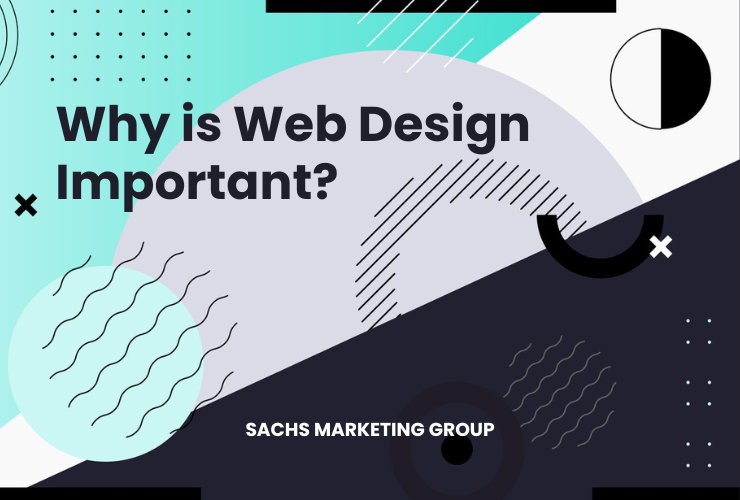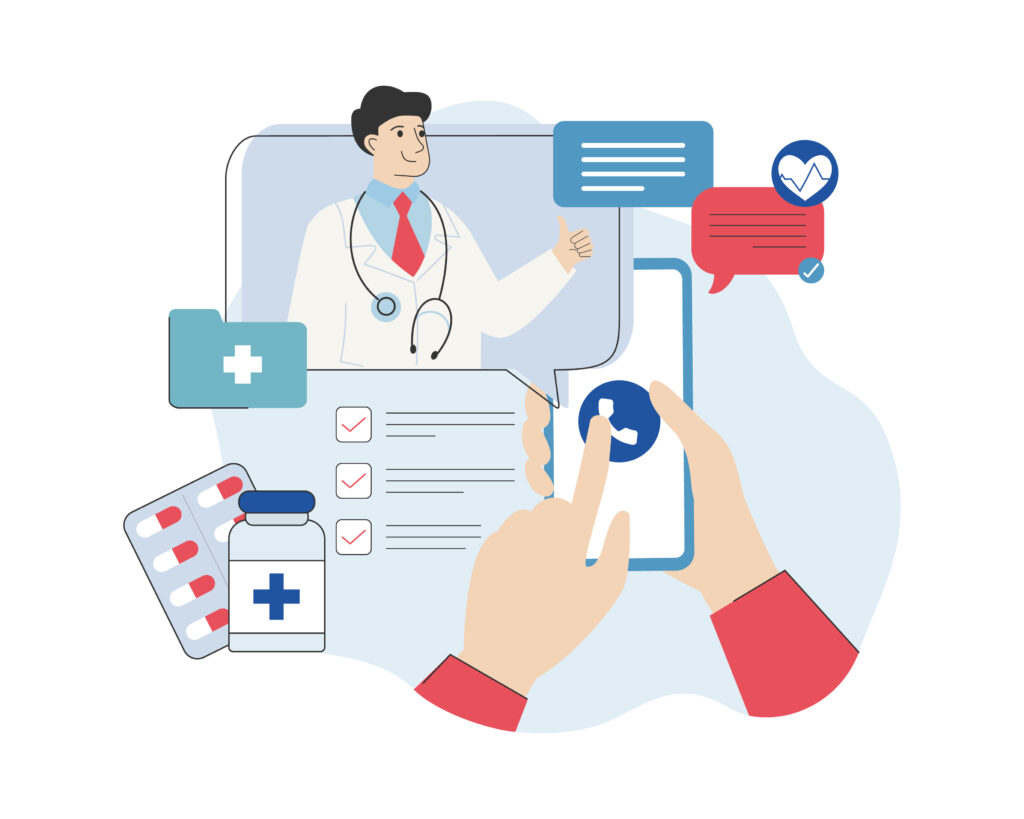Web design is important because it creates the first impression of your business for online visitors. A well-designed website ensures a user-friendly experience, builds trust, and reflects your brand identity. It plays a significant role in search engine optimization, which is essential for driving traffic to your site.
In today’s digital landscape, having a website is a necessity for businesses. However, a poorly designed website can cause more harm than good. It can create a negative first impression, make navigation frustrating for users, and even lower your ranking in search engine results. This translates to fewer visitors, lost opportunities for sales, and an overall negative image for your brand.
The consequences of not paying attention to your web design are dire. Consider the frustration and distrust that potential customers may feel if they cannot find what they are looking for on your site or if it loads too slowly. Think about the lost revenue and potential damage to your brand’s reputation. In a world where customers have countless options at their fingertips, you cannot afford to fall behind.
Investing in professional web design is the solution. Whether you have a website or you’re thinking about creating one, we thought it might be helpful to share a few reasons why web design is important.
So, why is web design important?
Overview
Why is Web Design Important?
Web design is not just about making a website look good – it has a substantial impact on various aspects of your business.
Ignoring the web design of your website can result in a negative impact across the various digital marketing efforts, including your social media marketing and SEO strategy.
Here are some reasons why web design is important:
- First Impressions: Your website is often the first point of contact for potential customers. A professional and clean design can create a positive first impression that keeps visitors on your site.
- Search Engine Visibility: Good web design incorporates SEO best practices which help in improving your website’s ranking on search engines. This is crucial for making your business more visible to potential customers.
- Brand Awareness: Consistent branding elements like logos, colors, and typography in your web design reinforce your brand identity. This helps in making your business more recognizable and memorable.
- Customer Service Expectations: The design of your website sets the tone for how customers perceive the quality of your customer service. A modern and user-friendly design signals that you care about the user experience.
- Trust: A well-designed website builds trust with your audience. On the contrary, outdated or poorly designed websites can make your business appear less credible.
- Generate Leads and Sales: Effective web design incorporates elements that encourage visitors to take action, such as filling out a contact form or making a purchase. This can result in more leads and sales for your business.
- Stand Out from the Competition: A unique and appealing web design helps differentiate your business from competitors. This can give you a competitive edge and attract more customers.
- Consistency Across Marketing Channels: Consistent web design ensures that your branding and messaging remain cohesive across different marketing channels. This can enhance brand recognition and make your marketing efforts more effective.
Your Website Makes the First Impression
Your website often serves as the front door to your business. It’s the place where potential customers get their first glimpse of your brand. This is why making a good first impression is so vital.
Imagine meeting someone for the first time. You’re more likely to engage with them if they are well-presented and welcoming. The same applies to your website. A well-designed website with an attractive layout, clear images, and easy navigation ensures visitors feel welcomed and are likely to spend more time exploring.
On the other hand, if your website looks outdated or is difficult to use, visitors may form a negative impression of your business. They might assume that your business is unprofessional or that you don’t put much effort into what you do. This could lead them to leave your site and not return, costing you potential sales.
In essence, the design of your website reflects the image of your brand. By investing in a professional, aesthetically pleasing, and user-friendly website, you’ll make sure that the first impression is a positive one.
Web Design Impacts Search Engine Visibility
Search engine visibility is crucial for driving traffic to your website. One of the main ways web design impacts search engine visibility is through SEO (Search Engine Optimization). Web design and SEO go hand in hand – a well-designed website is essential for effective SEO.
- Search engines favor websites that provide a good user experience. This includes fast loading times, mobile responsiveness, and easy navigation. If your website is slow, unresponsive on mobile devices, or difficult to navigate, it’s likely to rank lower in search engine results.
- Using headings, subheadings, and keywords in your content makes it easier for search engines to understand what your website is about. This can lead to higher rankings for relevant searches.
- The structure of your website’s URL and meta tags. A clean URL structure and well-optimized meta tags are more easily read by search engines and can contribute to better rankings.
- An essential web design feature that affects SEO is the implementation of a responsive design. As more people use mobile devices to browse the web, search engines have begun to prioritize websites that are mobile-friendly. A responsive design ensures your website adapts to different screen sizes, which is a significant factor in mobile SEO.
A thoughtfully designed website that considers SEO best practices can greatly improve your search engine visibility, attracting more visitors and ultimately leading to increased conversions and revenue for your business.
Web Design Can Build Brand Awareness
Your web design can help build brand awareness by creating a memorable and engaging online experience for your visitors. By using consistent branding elements such as colors, logos, and typography, you convey your brand’s identity.
Content that resonates with your audience further establishes your brand’s voice and values. Additionally, an intuitive and user-friendly layout fosters positive user experience, which in turn, leaves a lasting impression.
Mobile responsiveness ensures a seamless experience across devices, while social sharing options extend your reach. Collectively, these elements of your web design work synergistically to create brand recognition and loyalty among your target audience.
Web Design Can Establish Customer Service Expectations
The moment a visitor lands on your website, they begin forming perceptions about the quality of customer service they can expect from your business.
Just as a welcoming and well-organized physical storefront would set high expectations, so does a professional and streamlined website. Clear navigation, quick loading times, and easy access to contact information are akin to having a friendly receptionist; they show the visitor that the business is ready and eager to assist.
The tone and language used on the website also play a significant role in establishing customer service expectations. Personalized content, a conversational tone, and a clear display of commitment toward customer satisfaction can create a sense of warmth and approachability.
Integrating chatbots or live chat options sends a message that the business is accessible and ready for immediate assistance, akin to an attentive customer service representative.
On the other hand, a cluttered design with hard-to-find information and slow loading times can be equated to walking into a disorderly office with no one to guide you.
A well-designed website acts as a front-line customer service representative – it can either make the visitors feel valued and attended to or leave them frustrated and searching for alternatives.
Web Design Can Build Trust With Your Audience
A professional website design can help instill confidence and trust among your visitors – a foundational element of any business relationship. By providing a secure, informative, and navigable site, you can foster trust and encourage visitors to take the next step in the buyer’s journey.
Here are a few elements you can use to build trust:
- Professional Logo: A high-quality, professional logo helps in establishing brand identity and conveys legitimacy.
- High-Quality Images and Design: Professional images and a clean design show that you invest in your online presence, which can translate to investing in quality services or products.
- Terms and Conditions: Like privacy policy, making your terms and conditions accessible can add an extra layer of trust.
- Testimonials and Reviews: Showcasing positive feedback from previous customers can build trust among new visitors.
- Trust Badges: Display badges from third-party security services, or badges like “Google Trusted Store”.
- License Numbers: Displaying professional license numbers (if applicable) shows that your business meets specific industry standards.
- Certifications and Accreditations: Show any certifications or accreditations your business has earned, especially from well-known institutions or industry bodies.
Web Design Can Help Generate Leads and Sales
An intuitive and engaging web design is paramount in capturing the attention of visitors and turning them into leads and ultimately customers.
First, a well-structured website with clear calls-to-action (CTAs) guides the visitors through the buyer’s journey. Whether it is subscribing to a newsletter, making an inquiry, or making a purchase, persuasive CTAs play a crucial role.
Next, fast-loading pages and an easy checkout process reduce the chances of cart abandonment and improve the overall user experience. Moreover, incorporating landing pages that are specifically designed for different marketing campaigns can be highly effective in generating leads. These pages can have tailored content and CTAs for targeted segments of your audience, which increases the likelihood of conversions.
Lastly, mobile responsiveness is indispensable; as a significant portion of users access websites through mobile devices, ensuring a seamless experience can significantly impact sales and leads.
Web Design Helps You Stand Out From The Competition
Web design can help your business stand out from the competition by creating a unique and memorable online presence.
A well-designed website showcases your brand’s personality and values through visuals, layout, and content. By offering an intuitive and engaging user experience, your website can leave a lasting impression on visitors. Additionally, innovative features and a responsive design ensure your site is accessible across devices, further elevating the user experience.
Customizing your web design to reflect your brand and cater to your target audience’s preferences positions your business as a leader in your industry and sets you apart from competitors.
Web Design Creates Consistency Across Marketing Channels
The web design of a website can help create consistency across marketing channels by establishing a unified visual identity and tone.
This includes consistent use of logos, color schemes, typography, and messaging. When these elements are cohesive on the website and carried through to other marketing channels such as social media, email newsletters, and advertisements, it creates a seamless experience for the audience.
This consistency reinforces brand recognition, as the audience begins to associate specific visual cues and tones with the brand, no matter which platform they encounter it on. It also lends credibility and professionalism, which can lead to increased trust and customer loyalty.
Start Designing with these Free Resources
You don’t need access to all the powerful tools the pros use to create great design. Here are a few free design resources to help you create great designs.
- Canva – Online graphics design tools for just about everything
- Fontjoy – Generate font pairings in one click
- ColourCode – Discover beautiful color combinations
- Infogram – Create engaging infographics and reports
- Unsplash – No attribution needed images
- Awesome Screenshot – Extension for screenshot capture and editing
Working With a Professional Web Designer
While there are various tools available for creating a website, working with a professional web designer can significantly enhance the quality and effectiveness of your site.
A professional designer brings expertise in design principles, user experience, and SEO best practices. They can create a custom design that aligns with your brand and goals. Additionally, they can ensure that your website is optimized for performance and accessibility.
This investment can lead to a more polished and effective web presence that drives results for your business.
Here are 10 tips for choosing a web design company for your website.
Web Design FAQs
Web design is often one of the first things business owners think about when launching a new website for their company. At this point, a lot of questions may come up as they consider their options.
Here are a few of the most common questions we hear about web design along with some answers.
What is the importance of having a website?
Having a website is crucial for establishing an online presence, credibility, and accessibility. It allows businesses and individuals to reach a wider audience, showcase their products or services, and provide information to customers and potential clients 24/7.
Why is modern web design important?
Modern web design is important because it ensures that a website is visually appealing, user-friendly, and optimized for various devices. This enhances the user experience, builds trust with visitors, and improves the site’s performance and search engine rankings.
What are the benefits of a professional website?
A professional website conveys credibility and trustworthiness, which can lead to increased customer engagement and conversions. It provides a platform for showcasing products or services, facilitates customer support, and enhances brand recognition.
What is the most important thing in website design?
The most important thing in website design is user experience (UX). A well-designed website should be easy to navigate, load quickly, and be visually appealing. It should also be optimized for various devices and provide valuable content to meet the needs of the visitors.
What are the benefits of web design and development?
Web design and development enable the creation of a functional, aesthetically pleasing website. This helps in attracting and retaining visitors, improving search engine rankings, promoting products or services effectively, and establishing a strong online presence.
Let Sachs Marketing Group Handle Your Web Design
Sachs Marketing Group specializes in creating visually striking, user-friendly, and SEO-optimized websites. With an impressive portfolio of clients who have seen tremendous growth in brand visibility and sales, Sachs Marketing Group’s web design services are geared towards making your business thrive in a digital world.
Imagine your website with a stunning layout, lightning-fast load times, and an intuitive user experience that keeps your visitors engaged. Picture the influx of traffic, leads, and sales. Sachs Marketing Group can turn this into reality. Their team of web design experts focuses on the minute details to ensure your website is not just aesthetically pleasing but also highly functional and optimized for search engines.
Contact Sachs Marketing Group today and embark on a journey towards creating a website that becomes your most powerful marketing tool.
Conclusion
So, why is web design important?
It’s much more than just a visual representation of your business online – it’s an essential tool in building brand awareness, generating leads and sales, and establishing trust with your audience.
A well-designed website not only looks good but also provides a seamless user experience, is mobile-friendly, and is optimized for search engines. It builds trust with your audience, positions your brand as an authority in your niche, and ultimately drives more traffic and sales. Don’t leave your business’s success to chance; understand the importance of web design and make the wise decision to invest in it.
By understanding the importance of web design and partnering with a professional agency, you can ensure that your online presence is a powerful asset to your business. Don’t underestimate the impact that a thoughtfully designed website can have on your success. Make it a priority to invest in web design that reflects the quality and values of your business.
Contact us today to get the conversation started!












